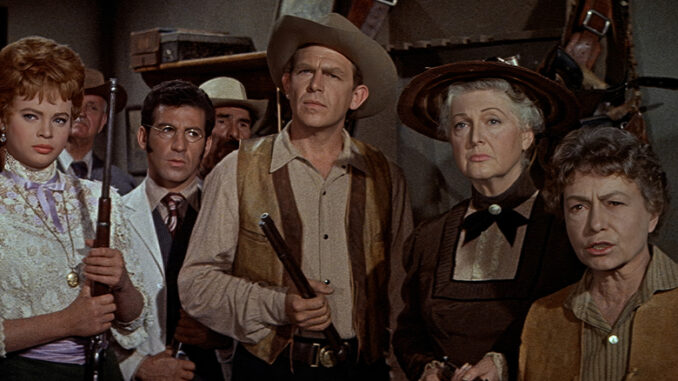
The cityscape, a symphony of ambition and acceleration, hums with the relentless rhythm of progress. Here, the "city slicker" thrives: sharp-suited, perpetually wired, their days measured in urgent deadlines and digital notifications. They navigate concrete canyons with a practiced cynicism, believing efficiency is the highest virtue and self-reliance the ultimate strength. Life is a ladder, always to be climbed, and sentimentality is a weakness best shed.
Then, there is Mayberry. Not a literal town, perhaps, but an archetype – a sprawling, sun-dappled landscape where time stretches like a slow, deep breath. Here, front porches are for sitting, conversations meander like lazy rivers, and the loudest sound is often the rustle of leaves or a distant dog's bark. The "Mayberry folk" move with an unhurried grace, their wisdom less about algorithms and more about common sense, less about spreadsheets and more about the interconnectedness of human lives.
It is when these two worlds collide, usually by some unexpected happenstance – a wrong turn, a family emergency, a forced sabbatical – that the city slicker, with all their urban armor, often finds themselves disarmed, and profoundly, unexpectedly schooled.
Imagine our slicker, let's call him Mr. Sterling, stranded in Mayberry after a flat tire on a country road. His phone, naturally, has no signal. His first instinct is panic, followed by a surge of irritation at this "primitive" inconvenience. He expects to wait hours for a tow truck, to be overcharged, to deal with incompetence. But then, a beat-up pickup truck pulls over. A grizzled man in overalls, with kind eyes and a grease-stained hand, ambles out. No questions, no judgment, just a quiet assessment of the situation. Within minutes, a jack appears, a spare is mounted, and Mr. Sterling finds himself shaking hands with a man named Jed, who refuses payment beyond a "good deed done."
This is the first lesson: the currency of community. In the city, help is a transaction – a service ordered, a fee paid. In Mayberry, it’s an unspoken covenant. Jed didn’t help because he was paid; he helped because that’s what neighbors do, even to strangers. Mr. Sterling, who had always believed in pulling himself up by his bootstraps, suddenly feels the unfamiliar warmth of genuine, unasked-for human connection. His self-reliance, once a badge of honor, now feels a little like isolation.
Next, consider the Mayberry approach to problems. Back in the city, every issue has a specialist, an app, a committee. A leaky faucet calls for a licensed plumber; a philosophical debate for a podcast. In Mayberry, a leaky faucet might be fixed by old Mrs. Henderson’s nephew, who “knows a thing or two about pipes,” or a philosophical debate might unfold over checkers at the general store. The wisdom isn't academic; it's experiential, rooted in observation and trial-and-error.
Mr. Sterling, faced with a problem that can't be solved with a search engine – perhaps a beloved heirloom that needs mending, or a small town mystery that requires local knowledge – finds his complex problem-solving strategies utterly useless. He’s accustomed to outsourcing thought. The Mayberry folk, however, listen intently, offer homespun advice, connect him with someone who "just might know," and do so with a patience that grates on his nerves at first, then slowly, surely, calms them. He learns that common sense is a superpower, and that sometimes, the simplest solution, delivered with a smile and a shared cup of coffee, is the most profound.
But perhaps the most humbling lesson for the city slicker is the redefinition of "richness." In their world, wealth is measured in square footage, stock portfolios, and designer labels. The Mayberry folk often live modest lives, free from the crushing weight of relentless aspiration. Their riches lie in shared laughter on a porch swing, the bounty of a well-tended garden, the comfort of knowing every face in the grocery store, and the peace of a night sky ablaze with stars, undimmed by city lights.
Mr. Sterling, initially pitying their "lack," slowly starts to notice the effortless joy, the unburdened spirits, the deep contentment radiating from these people who seem to have so little by his standards. He realizes that while he was chasing the next promotion, they were living, truly living, in the present. He learns that time is the ultimate luxury, and that chasing material success often means sacrificing the very moments that define a life well-lived.
The schooling by Mayberry folks isn't about shaming the city slicker; it's about reorienting their compass. They leave, if they leave at all, not necessarily abandoning their urban lives, but carrying a quiet shift within them. They might still wear the sharp suits, but now they pause to truly listen. They might still chase deadlines, but perhaps they appreciate the unhurried moments more. They might still value efficiency, but they also understand the irreplaceable value of a friendly nod, a helping hand, and the simple, profound wisdom that flourishes far from the clamor of the city, under a sky full of stars. They’ve been schooled, not in facts or figures, but in the timeless, essential truths of what it means to be human.